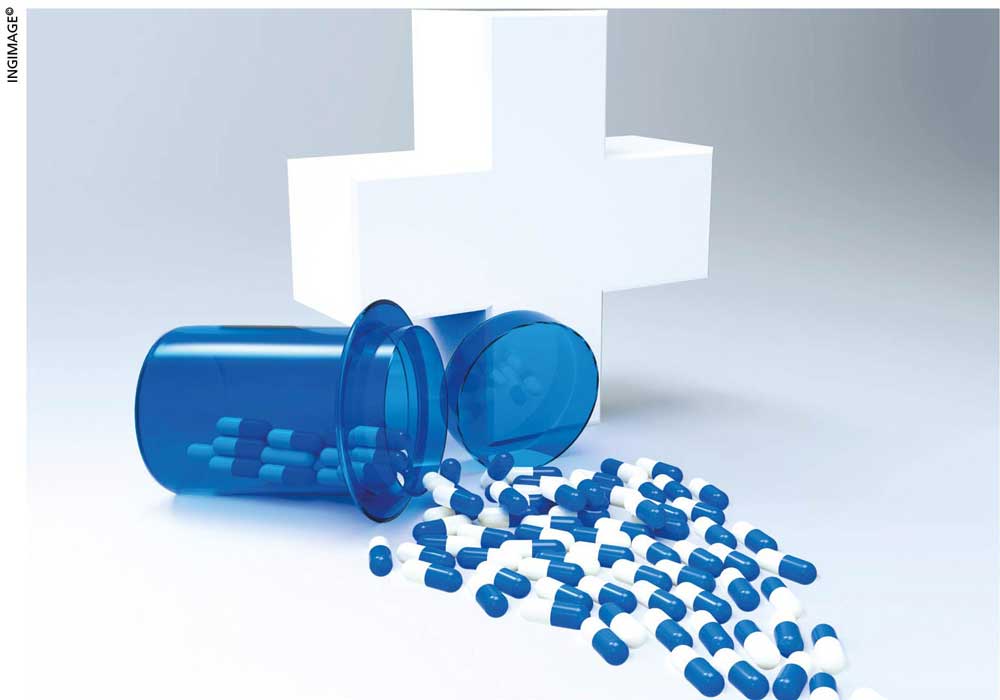TECH IN HEALTHCARE

POPPING THE DIGITAL PILL!
Tech-powered treatment is not a bitter pill to swallow – Ruwandi Perera

The digital clinic. It is where you consult a doctor from the comfort of your home over a video conference call – and have your diagnosis and medications delivered to your mailbox in a few days.
Even though most of us haven’t switched to digital clinics yet, technology hasn’t waited for anyone before taking its next leap. Enter digital pills – medication with microsensors in them that can track our health… from within our bodies!
Digital pills aren’t new. They entered the market in 2017 when a company called Proteus – which strangely declared bankruptcy a few years later – began selling a product that had an ingestible sensor to track a patient’s consumption of drugs.
We are prescribed medication that needs to be taken once, twice or three times a day, before or after meals. More often than not however, we forget the prescription and timings, which can result in the medication not working optimally.
Ingestible sensors in your tablets or pills will act as a wearable device inside the body to transmit information about your consumption of medication to your smartphone. So when you pop a pill, it will send a signal to your phone and even say ‘thank you’! This facilitates consistent adherence.
Digital pills also come in the form of camera pills that help doctors check for ailments in your body. These pills can check your temperature, heart rate, gases and acids, and even glucose in your blood, to work out whether or not everything is working properly.
Furthermore, all this tracking takes place in real time, which makes it easy to address issues faster and far more effectively.
There have been digital pills that operate without batteries. Instead, they operate by consuming glucose for energy – the same glucose they monitor.
All this sounds wonderful and we can’t deny that these innovations will revolutionise healthcare, not only in terms of accuracy and speed of care but also the cost of health checks in the long run.
However, this picture is not all rosy because the technology flies in the face of patient privacy.
One might argue that the pros of digital pills greatly outweigh the cons; after all, we’re talking about healing people. Nevertheless, the technology is invasive, and some may contend that it violates a person’s right to choose whether or not to consume medicines for reasons best known to them.
Another wave of innovation that has and will continue to enter the realm of healthcare is AI. From diagnosis to discovering new drugs, artificial intelligence has become a game changer in creating a healthier world.
As for illnesses, AI-powered tools (similar to ChatGPT) can be used to generate a diagnosis even today. If you enter a patient’s summary, symptoms, medical history and any other related data, these tools can provide an accurate diagnosis and also recommend several treatment options.
So are these diagnoses any good?
Some researchers have found that AI-powered language tools such as ChatGPT might produce misleading statements based on erroneous information on the web. Others have found that AI-powered tools offer sound advice that is consistent with standard practices and ethical guidelines.
The jury is still out and the verdict has yet to be delivered… but the waiting has stopped.
Companies are investing heavily in this field. For instance, Microsoft and digital pathology company Paige are partnering to build the world’s largest image-based AI model to help detect cancer.
And at home, we recently witnessed the launch of affordable and accessible AI-powered technology in Sri Lanka (the first of its kind in South Asia), which can detect cancers with 97 percent accuracy using a photograph of an individual’s iris.
The company that invented the technology attributed the advent of the software to iridology, which is an ancient medicinal technique. It’s said that it can detect several internal cancers – including lung, prostate, breast, cervix and uterine cancer.
When more companies invest in this field, the more sophisticated the products and more cutting-edge the technology will be, resulting in better and more advanced and accurate diagnoses, screenings and eventually, effective treatments.
The future of technology driven healthcare might look hazy but the optimists are extremely hopeful.





Leave a comment